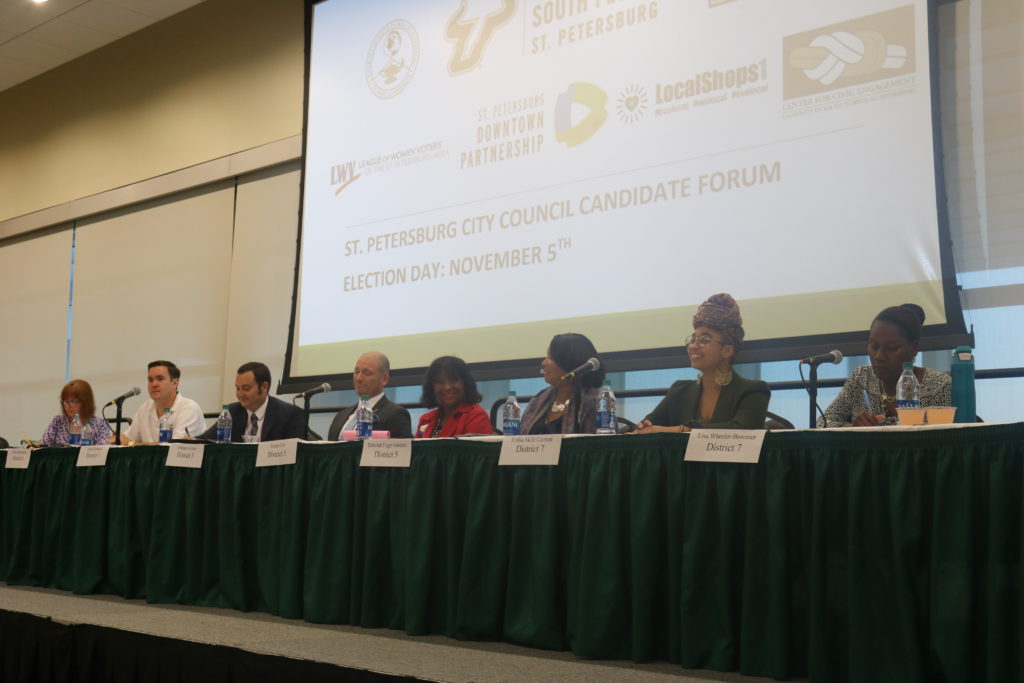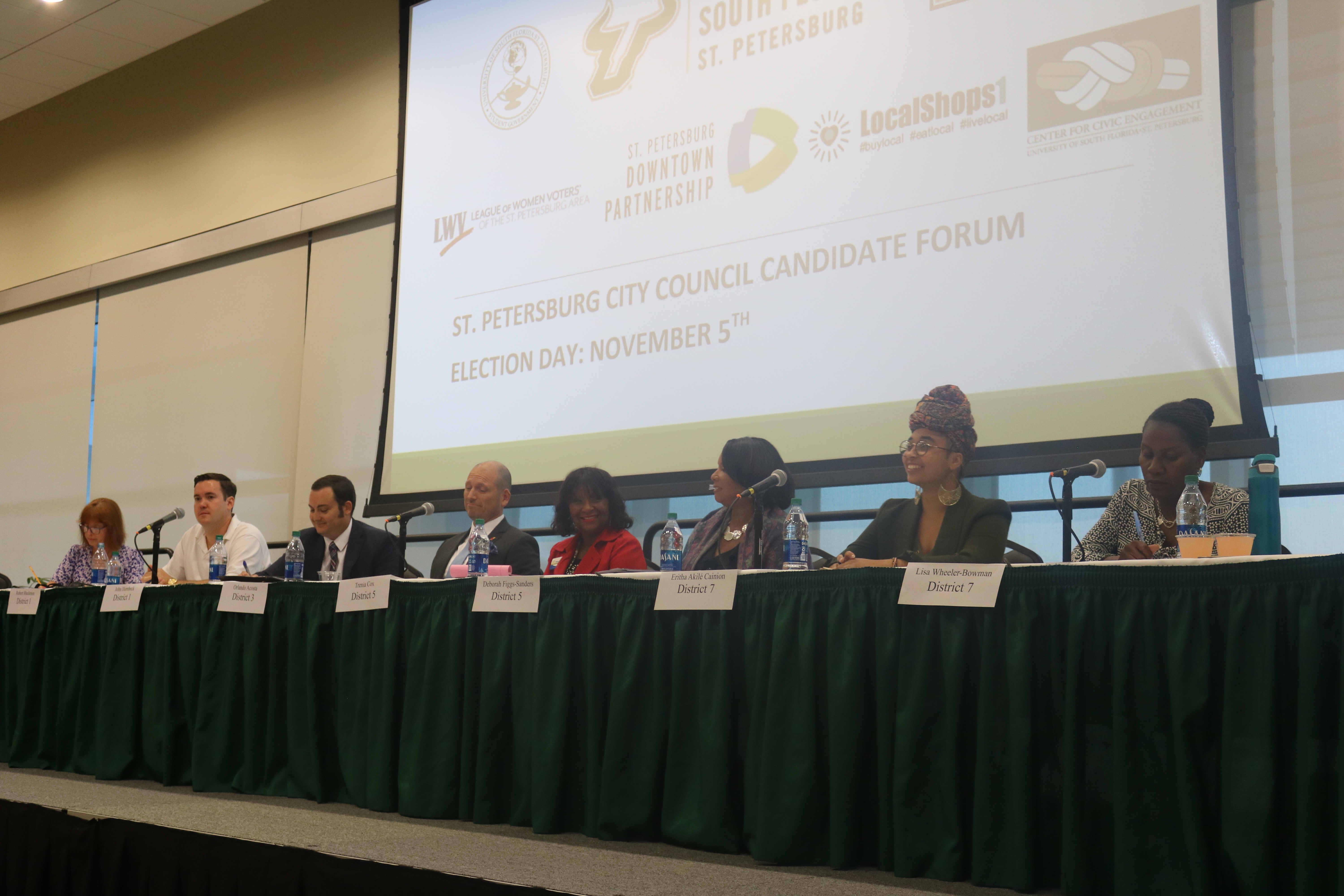Many of the candidates agreed that affordable housing was one of their top priorities.

Story and photo by Carrie Pinkard
On Sept. 25, seven St. Petersburg city council candidates gathered in the University Student Center ballrooms hoping to win the student vote.
The first four rows of seats were reserved for students, who submitted questions for the candidates on notecards.
“We’re not going to be duking it out up here,” moderator and USF St. Petersburg professor Judith McLauchlan told the crowd, reminding everyone that this is a non-partisan race.
City council elections in St Petersburg come along every two years, which means this is many students’ first chance to vote.
The election will take place on Nov. 5, and there are four districts with open seats.
District 1 has Robert Blackmon versus John Hornbeck.
District 3 has incumbent Ed Montanari versus Orlando Acosta. Montanari was not at the candidate forum on campus and reportedly did not respond to invitations to attend.
District 5 is Trenia Cox versus Deborah Figgs-Sanders.
Finally, District 7 has incumbent Lisa Wheeler-Bowman versus Eritha Cainion.
Many of the candidates agreed that affordable housing was one of their top priorities.
“Housing in St Pete is really becoming restricted if you make less than 27 dollars an hour,” Figgs-Sanders said. “That group includes our police officers, our teachers, our CNA’s, and those that work in retail.”
Figgs-Sanders said she supports programs like the Pinellas Ex-offender Reentry Coalition’s tiny homes that bring housing to the homeless and struggling veterans.
District 7 candidate Cainion echoed the need for more affordable housing.
“There is an affordable housing plan that the city put out that consists of $60 million over a 10-year period to develop 2400 units of affordable housing,” she said.
“We don’t have 10 years, this is something that has to happen tomorrow. People are sleeping on park benches today. People in this room are going to be wondering where they’re going to live when they graduate college.”
Cainion suggested converting Tropicana Field into affordable housing and a place for economic development.
The future of the 85-acre baseball stadium was another major topic among the candidates.
Hornbeck said he supports keeping the Tampa Bay Rays in St. Petersburg but recommends moving them to a much smaller, 20,000-seat stadium. He said Tropicana Field should be converted into a place for housing and a “world-class convention center.”
District 5 candidate Cox said she would want to use the Tropicana Field development to connect downtown to St. Petersburg neighborhoods.
“Tropicana Field is right in the Innovation District. Johns Hopkins is right there. The University of South Florida could grow its graduate programs there. It can be an incubator for new businesses,” she said.
Cainion said her platform stands out from everyone else’s on the panel, as it focuses on reparations for the black community.
“I think one of the biggest issues — and the elephant in the room — is the oppression of the black community,” she said. “That is the center of my platform. When you drive two minutes away from here, you can see the giant divide that’s in this city. Every problem that we face can be dealt with … when we face the oppression and exploitation of the black community.
“If fighting for the black community makes me radical, then call me radical. The idea that a thriving black community won’t benefit everyone in the city is a false notion.”
One of the final questions was how the candidates would get students to vote and engage in local politics.
“First of all, I want to say I’m only 30,” Blackmon said. “So it’s not that many years off that you could be running yourselves. City council is supposed to be your conduit to government. You can literally message with your representative to get things done.”
“Voting is very very important,” Cox said. “Civic engagement can shape the world. Whatever your passion is, use your vote to get that policy in place.”
While the primary election limited residents to voting only for their own district, the November election opens up the vote citywide.
The deadline to register to vote for the upcoming city council election is Oct. 7.
This story was updated on Oct. 2 to correct the misspelling of Ed Montanari’s name, and City Council election frequency. Elections happen every two years, not four.



